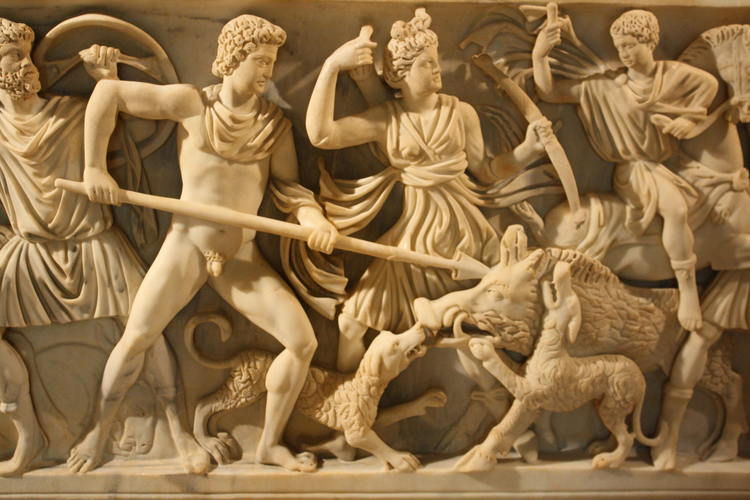Folklore Impact: Poetry Edition
- Gatharion
- Oct 4, 2018
- 4 min read

In honor of National Poetry Day in the UK, I thought I might share a poem from one of my favorite British poets... But I guess they're like potato chips and I can't have just one! So here are some poems from three of my favorite British poets and me being who I am, I immediately latched on to poems with blatant folklore motifs.
More than just the subject matter, though, each of these poems demonstrates the hold folklore has on our psyche and the enduring impression that the tales from our youth can leave upon us.
Poem 1 WE HAVE THE FAIRY TALES BY HEART
We have the fairy tales by heart,
No longer tremble at a bishop's hat,
And the thunder's first note;
We have these little things off pat,
Avoid church as a rat;
We scorn the juggernaut,
And the great wheels' rut;
Half of the old gang's shot,
Thank God, but the enemy stays put.
We know our Mother Goose and Eden,
No longer fear the walker in the garden,
And the fibs for children;
The old spells are undone.
But still ghosts madden,
A cupboard skeleton
Raises the hairs of lad and maiden.
If dead men walked they, too, would holler
At sight of death, the last two fisted killer
Stained a blood colour;
A panic's pallor
Would turn the dead yellow.
We have by heart the children's stories,
Have blown sky high the nursery of fairies;
Still a world of furies
Burns in many mirrors.
Death and evil are twin spectres.
What shall destruction count if these are fixtures?
Why blot the pictures
Of elves and satyrs
If these two gnomes remain unmoved by strictures?
We have the stories backwards,
Torn out magic from the hearts of cowards
By nape and gizzards;
There are two laggards,
Death and evil, too slow in heeding words.
Tear by the roots these twin growths in your gut;
Shall we learn fairy tales off pat,
Not benefit from that?
Burn out the lasting rot,
Fear death as little as the thunder's shot,
The holy hat.
-Dylan Thomas
Poem 2
KNIGHT-IN-ARMOUR
Whenever I'm a shining Knight,
I buckle on my armour tight;
And then I look about for things,
Like Rushings-Out, and Rescuings,
And Savings from the Dragon's Lair,
And fighting all the Dragons there.
And sometimes when our fights begin,
I think I'll let the Dragons win...
And then I think perhaps I won't,
Because they're Dragons, and I don't.
-A. A. Milne
(It's perhaps a little on the nose here, but it's almost impossible not to think of the often misquoted, and misattributed, line by G. K. Chesterson here: “Fairy tales do not tell children the dragons exist. Children already know that dragons exist. Fairy tales tell children the dragons can be killed.”)
Poem 3
ROBIN HOOD
To a Friend
No! those days are gone away
And their hours are old and gray,
And their minutes buried all
Under the down-trodden pall
Of the leaves of many years:
Many times have winter's shears,
Frozen North, and chilling East,
Sounded tempests to the feast
Of the forest's whispering fleeces,
Since men knew nor rent nor leases.
No, the bugle sounds no more,
And the twanging bow no more;
Silent is the ivory shrill
Past the heath and up the hill;
There is no mid-forest laugh,
Where lone Echo gives the half
To some wight, amaz'd to hear
Jesting, deep in forest drear.
On the fairest time of June
You may go, with sun or moon,
Or the seven stars to light you,
Or the polar ray to right you;
But you never may behold
Little John, or Robin bold;
Never one, of all the clan,
Thrumming on an empty can
Some old hunting ditty, while
He doth his green way beguile
To fair hostess Merriment,
Down beside the pasture Trent;
For he left the merry tale
Messenger for spicy ale.
Gone, the merry morris din;
Gone, the song of Gamelyn;
Gone, the tough-belted outlaw
Idling in the "grenè shawe";
All are gone away and past!
And if Robin should be cast
Sudden from his turfed grave,
And if Marian should have
Once again her forest days,
She would weep, and he would craze:
He would swear, for all his oaks,
Fall'n beneath the dockyard strokes,
Have rotted on the briny seas;
She would weep that her wild bees
Sang not to her—strange! that honey
Can't be got without hard money!
So it is: yet let us sing,
Honour to the old bow-string!
Honour to the bugle-horn!
Honour to the woods unshorn!
Honour to the Lincoln green!
Honour to the archer keen!
Honour to tight little John,
And the horse he rode upon!
Honour to bold Robin Hood,
Sleeping in the underwood!
Honour to maid Marian,
And to all the Sherwood-clan!
Though their days have hurried by
Let us two a burden try.
-John Keats
I felt I could hardly exclude Keats, if I was going to have poems waxing rhapsodic about the lingering influence of folklore. (A contrast between the takeaways that Dylan and Keats have on Greek Mythology might come another time.)
The Robin Hood poem felt especially appropriate as the stories of Sherwood's bold outlaw had a heavy impression upon me as a child. (Why yes, I did get teased for wearing a Robin Hood hat to school. Why do you ask?)




Comments